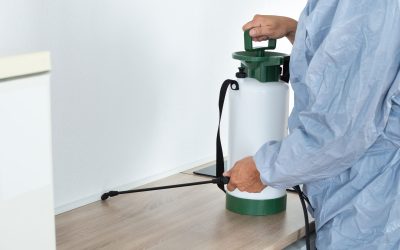Termites can be a major problem for homeowners. In fact, termites cause about billion dollars worth of damage to homes in the Australia every year. If you have a subterranean termite infestation in your home, one of the biggest decisions you’ll face is whether to use a repellent or a non-repellent liquid termite treatment in Sunshine West to quell the problem. Here’s how each of these popular termite treatments work, and the advantages and disadvantages of each.
Repellent Termite Treatments
Repellent treatments work by saturating the soil surrounding your home at as many entry points as possible. When properly applied, the treatments create a barrier that termites will not want to cross. For effective protection, drilling may be required in slabs or foundation walls depending on your home’s construction. Repellent termiticides have been used for over 50 years, and although the application method has remained largely the same the latest products are far more effective then those used in the past.
Pros:
1. Works quickly
2. Treatment lasts a long time
3. Keeps new colonies from entering your home
4. Less expensive than non-repellent treatments
Cons:
1. Doesn’t kill existing termites
2. Requires many gallons of pesticides
3. Can leave an initial unpleasant odor
4. Termites can often find gaps in the treatment area
Non-Repellent Termite Treatments
Unlike repellent treatments, non-repellent termiticides actively kill existing termites. A non-repellent termite solution in Sunshine West is completely undetectable to termites, and they’ll unknowingly encounter the poison and infect the rest of the colony. Some of these treatments are applied using a conventional soil-drench method that’s similar to repellent treatments, and some new products like Termidor use a Extended Perimeter Plus Localized Interior (EP/LI) treatment that helps to kill existing colonies inside the home.
Pros:
1. Can stop existing termite infestations
2. Treatments work quickly
3. Can treat the inside of the home with the EP/LI treatment method
4. Can work for up to 15 years
Cons:
1. More expensive than non-repellent treatments
2. Pesticides can taint nearby soil and water supplies
No matter which termiticide treatment you decide to use, professional application is a must for safety and success. To talk to a pest-control expert about whether a repellent or non-repellent termite treatment will work best for you, contact Flick Pest Control.



